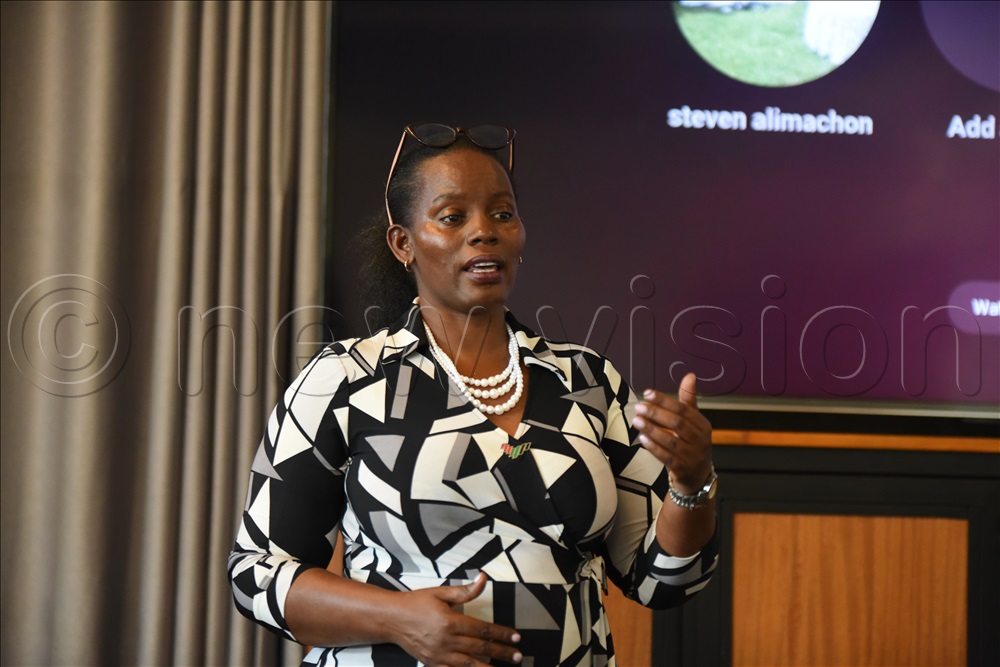Importers of agrochemicals oppose 2.5% tax in imports
Effective 1st July, importers of agrochemicals are required to pay a 2.5% tax when importing specific pesticides and fungicides, also known as plant protection products.
Chairperson of Crop Life Uganda Agnes Mbabazi Kabwisho engaging particpants during the trainng. (Photos by Prossy Nandudu)
________________
Farmers planning to buy fungicides and pesticides ahead of the next planting season will incur an additional cost that will enable them to meet the newly introduced tax obligations.
Effective 1st July, importers of agrochemicals are required to pay a 2.5% tax when importing specific pesticides and fungicides, also known as plant protection products.
The tax was imposed by the Ministry of Finance, Planning and Economic Development in this financial year, and was implemented on July 01, after it was signed off by President Yoweri Museveni on June 30, 2025.
According to the Chairperson of Crop Life Uganda, an Organisation that brings together agrochemical importers, manufacturers and distributors in Uganda, Agnes Mbabazi Kabwisho, the tax is divided into two, 1.5% as infrastructure levy and 1% as declaration levy.
Mbabazi explained that due to the changing climate, pests and diseases, coupled with reduced quality of the soil, more farmers are investing in plant protection products.
She added that while many farmers are trying to understand the importance of plant protection products, they have been having challenges with cost.
“Now, when the importer is slapped with high importation costs and he transfers the cost to the farmer, this farmer will not buy these products again, so more crops will be infested with pests and diseases, affecting production, and eventually food insecurity sets in,” Mbabazi explained.
Chairperson of Crop Life Uganda Agnes Mbabazi Kabwisho.
Mbabazi appealed to the agriculture and finance ministries to intervene and ensure that the tax is removed for agriculture to become a key economic transformation sector, as the NDPIV.
“A 2.5% tax on agriculture inputs looks small, but to a smallholder farmer in the village, it means a lot. This is our humble request. If we want to grow agriculture for food security and also adapt to climate change, you should take us where we were,” she added.
Her appeal was supplemented by Sharad Singh, the executive director of Uganda Crop Care Limited, who said the law seems to be segregative.
Adding that in the law, individual farmers are exempted from paying the proposed taxes if they decide to import on their own.
“The law states that the person engaged in agriculture who is the farmer is exempted, but you are imposing the task on us who supply the farmers, not many farmers can import on their own, so the majority of smallholder farmers are going to suffer,” Sigh said.
In response, the Commissioner of Crop Inspection and Certification, Dr Paul Mwambu, explained that the meeting with key importers of plant protection products was to understand the implications of the tax on the final consumer.
“Our role as the Ministry of Agriculture under the Agriculture Chemicals Control Act of 2007 is to make sure that we supervise and engage them to address major concerns such as these. So we are helping them put together the necessary information to further their meeting with the finance ministry,” Mwambu said.